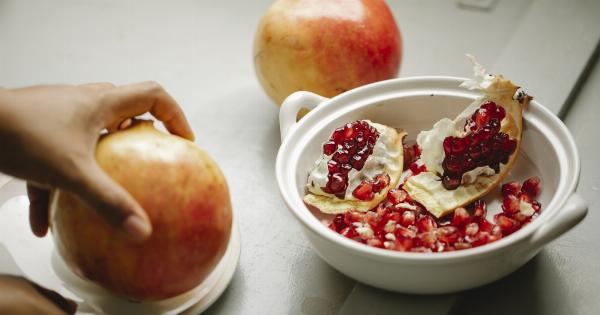Dealing with a bloated belly can be uncomfortable and frustrating. Bloating is often caused by certain foods that can cause gas and water retention in the abdomen.
However, with some simple dietary adjustments, you can avoid these belly-bloating foods and enjoy a flatter and happier tummy. In this article, we will uncover the top 10 belly-bloating foods and provide you with practical tips on how to avoid them.
1. Carbonated Drinks
Carbonated drinks like soda, sparkling water, and fizzy beverages are notorious for causing bloating. The carbon dioxide in these drinks can build up in your stomach, leading to excess gas and discomfort.
To avoid bloating, opt for still water, herbal teas, or freshly squeezed juices instead.
2. Beans and Legumes
Beans and legumes are rich in fiber and essential nutrients, but they can also cause bloating due to their high content of oligosaccharides, a type of carbohydrate that can be difficult to digest.
To reduce bloating, soak beans and legumes thoroughly before cooking or opt for canned options, which are often pre-soaked.
3. Cruciferous Vegetables
Cruciferous vegetables like broccoli, cabbage, cauliflower, and Brussels sprouts are packed with nutrients, but they can also cause bloating.
These vegetables contain a sugar called raffinose, which is known to cause gas and bloating in some individuals. Steaming or cooking these vegetables can help make them easier to digest.
4. Dairy Products
Dairy products can be a common culprit for bloating, especially if you have lactose intolerance or sensitivity. The lactose in dairy products can be difficult to digest, leading to gas and bloating.
Consider trying lactose-free or plant-based alternatives like almond milk, coconut milk, or lactose-free yogurt.
5. Artificial Sweeteners
Avoiding artificial sweeteners like sorbitol, xylitol, and mannitol can help prevent bloating. These sweeteners are known as sugar alcohols and are commonly found in diet sodas, sugar-free gums, and candies.
They can cause bloating and digestive issues in some individuals.
6. Fried and Fatty Foods
Fried and fatty foods can slow down digestion and lead to bloating. These types of foods can be harder to break down and can cause delayed emptying of the stomach.
Opt for healthier cooking methods like grilling, baking, or steaming to reduce the risk of bloating.
7. Onions, Garlic, and Spicy Foods
Strong-flavored foods like onions, garlic, and spicy dishes can irritate the gastrointestinal tract and lead to bloating and discomfort. These foods can also cause acid reflux and heartburn.
If you tend to experience bloating after consuming them, try reducing their consumption or removing them from your diet temporarily.
8. Wheat and Gluten
For individuals with gluten intolerance or sensitivity, consuming foods like wheat, barley, and rye can cause bloating. These grains contain gluten, a protein that can trigger inflammation and digestive issues.
Opt for gluten-free alternatives like quinoa, buckwheat, or brown rice to avoid bloating.
9. Apples and Pears
Apples and pears are high in fiber and can cause bloating, especially if consumed in excess. The fiber in these fruits can be fermentable, leading to gas and bloating.
Limit your intake of these fruits or opt for lower fiber options like berries, melons, or citrus fruits.
10. Chewing Gum
Chewing gum can cause you to swallow air, which can contribute to bloating and gas. Additionally, some chewing gums contain artificial sweeteners, which can also lead to bloating.
If you regularly chew gum and experience bloating, consider reducing or eliminating it from your routine.






























